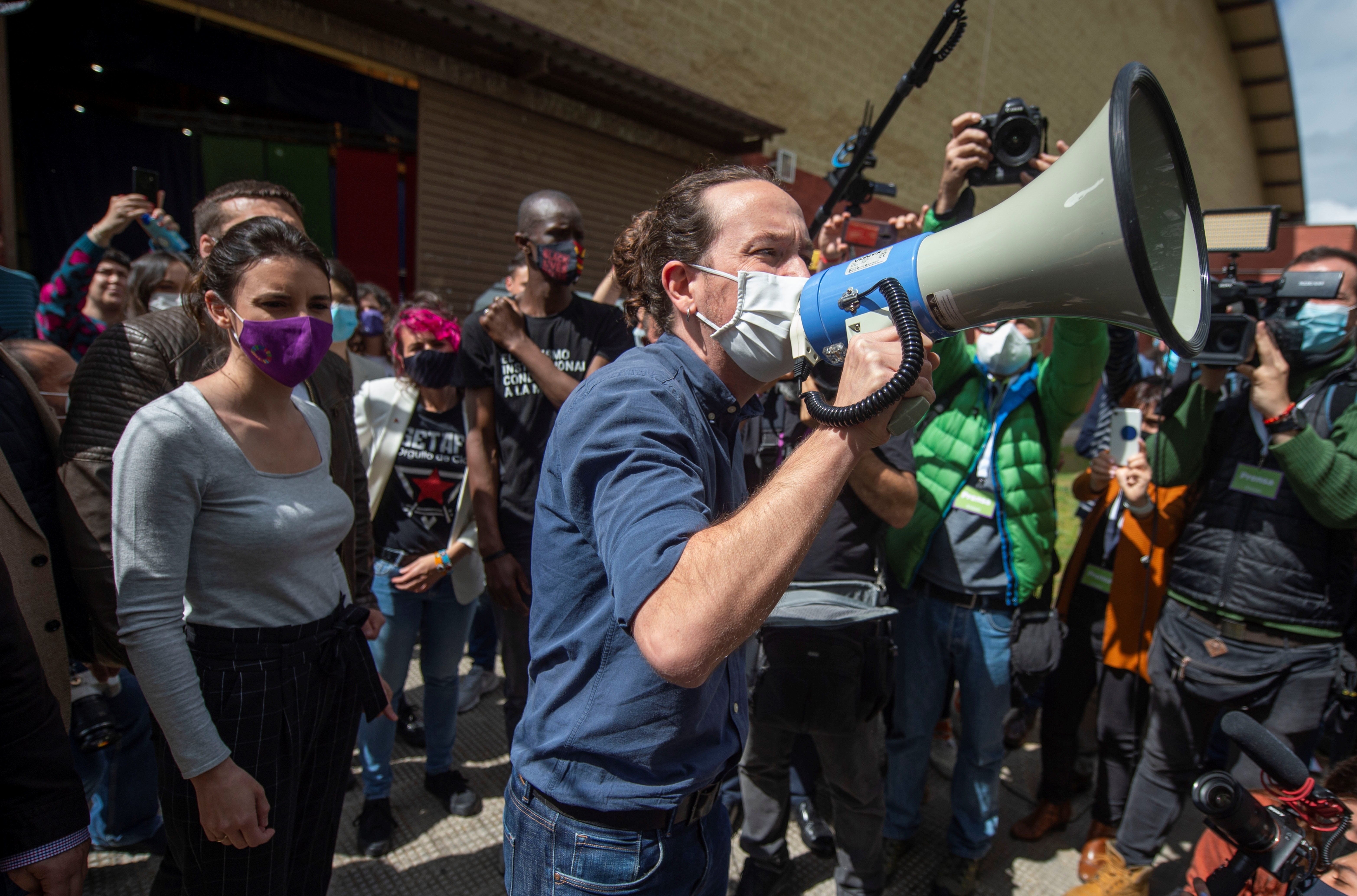Death threats against members of the Spanish coalition government and high-ranking public officials have marked a turning point in the campaign for the Madrid regional elections on May 4th. First, it was Spanish interior minister Fernando Grande-Marlaska, former deputy PM and May 4th election candidate Pablo Iglesias and Civil Guard director, María Gámez, who received letters with bullets inside. This Monday, it was the Spanish industry minister, Reyes Maroto, who also received an envelope containing a blood-spattered knife, allegedly sent by a person diagnosed with schizophrenia. In this atypical electoral context, Iglesias himself has once again looked towards the Spanish monarchy, this time for "not condemning fascist violence."
Speaking at an event in the Madrid locality of Getafe this Tuesday, the Unidas Podemos candidate for the Madrid autonomous presidency asked: "How is it possible that with real death threats, verified by the ministry of the interior, there has not yet been a single word from the royal house condemning fascist violence”. In this regard, he linked Vox to the monarchy: "If anyone has any doubt that fascism is the face of power when democracy is making progress, ask yourself which is the most monarchical party in Spain. Which one despises democracy and the conquests made by working people?"
Pablo Iglesias took the opportunity to reflect on fascism as "a political mechanism for power" that puts a stop on social progress. And he gave examples: “In the country where rappers go to prison for saying that the Bourbons are thieves or that puppeteers end up in prison, it is shown that their lies are unpunished. This is how the mechanism of fascism works”.
In the face of the "provocations, insults and violence" from far-right Vox, the leader of the Podemos party asserted that workers must prove that they are the force of order, law, democracy, because working people represent order in the face of chaos, and need laws against the powerful”.
Spanish government response
The Spanish government also responded to the death threats. The Spanish government spokesperson, María Jesús Montero, wanted to send a "firm and forceful message". She made it clear that "no threat, no act of violence, no intimidation against public officials will weaken the deep democratic convictions that make up this government." The Socialist minister stressed the grave nature of the death-threat incidents, and in this regard demanded "unanimous condemnation" by everyone, from all political and social actors, "without any excuse or nuance." She insisted that "condemnation by all democrats" is needed, and called on the Popular Party (PP) candidate Isabel Díaz Ayuso to institute a cordon sanitaire to isolate far-right Vox.
Ayuso's PP candidature is the clear favourite to finish as largest party in next Tuesday's snap election. However, it is predicted that the PP will not achieve an absolute majority, in which case the only viable support to return the PP to leadership of the Community of Madrid may come from Vox. Meanwhile, the three parties of the left (Podemos, Más Madrid and PSOE) have been predicted by most polls up till now as likely to fall a few MPs short of the 69 seats required to displace the right from the regional government.

